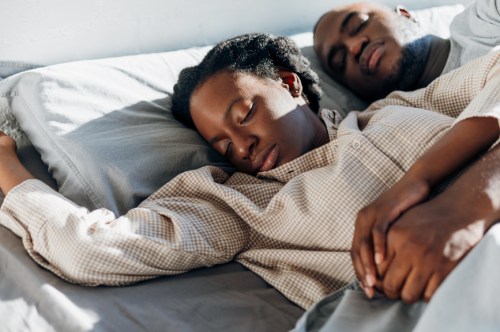Do All of Your Pillows Feel Wrong? Here’s the PT Scoop on Nighttime Neck Pain
When your neck pain is so severe that all of your pillows feel wrong, it could be indicative of other issues.

It can seem like it’s always once the lights are out and you’ve taken melatonin, that an uncomfortable pillow attack begins and results in annoying neck pain. You might toss and turn, but no configuration of pillows feels quite right on your neck. What does it mean? Is it your neck or your pillow? What gives? As with most things, the culprit depends on the person and their unique situation, Sam Kelokates, PT, DPT, a physical therapist specializing in headaches, explains. If none of your pillows feel right underneath your precious head, the discomfort might indicate less-than-ideal posture.
Experts in This Article
Below, we asked experts to explain why it can feel like your pillows are out to get you (plus a few solutions you can practice during the day).
The short answer? Yes, your pillows can cause (or worsen) neck pain
Poor positioning is one of the most significant neck pain contributors, says Kristin Williams, MS, PT, DPT, OCS, doctor of physical therapy. Ideally, you want to maintain the natural C-curve of the neck while lying on your side or back. However, if your pillow is too thick or too thin, Dr. Williams says, you can end up sleeping with your neck in a cramped position.
“As we age and the neck starts to develop arthritis, it is even more important that our head and neck are supported in a neutral position while sleeping,” Dr. Williams says. In these cases, tossing and turning to find the right pillow position is actually what you should do, Dr. Kelokates says. Your body is intuitive and will try to move to a comfortable spot as you sleep, but listening to what your neck is telling you is important.
Pillows do matter, so make sure you’re taking stock of how old they are, soft they are, and if they leave you sore in the morning. Additionally, Dr. Williams says, pillows can lose structural support if they’re foam or fullness if they’re down-filled. So you do need to replace them over time.
And, even though pillow preferences vary, a small 2019 study published in the Journal of Interdisciplinary Health Sciences suggests that ergonomic, supportive foam pillows could assist the reduction of chronic neck pain compared to chiropractic treatment alone. So the direction you want to head in, Dr. Williams says, might involve using a firmer pillow that allows your neck to remain even with your spine. (We have a few suggestions of our own.)
What you do during the day matters, too
Even though pillow attacks tend to happen at bedtime, Dr. Kelokates says that what you’re doing during the day is also important. Many people have neck pain because of daytime posture and sleeping position, says Dr. Williams. Necks need to move, and slouching or looking down at your phone can strain them, she adds.
When you’ve spent all day straining, it makes sense that you might notice the tightness in your neck when it’s time to rest. Sure, maybe your pillows feel wrong, but the pain might also be due to existing tension and soreness in your neck muscles, Dr. Williams says. If you have a job that requires you to sit still and look at a screen for prolonged periods, Dr. Williams recommends stretching every hour–just for a minute or two. “This keeps the joints healthy and helps the irritated soft tissues heal quicker,” she says. Dr. Williams recommends the following three moves:
- Lean your ear towards your shoulder and hold for 20-30 seconds. Turn and look to one side and hold for 20-30 seconds. Do this on both sides. You can also do these motions from side to side in a more fluid movement, 5-10 times.
- Do 10 “chin tucks” where you draw the ears back over the shoulder like you’re tucking your chin into an invisible (or real) turtle neck, and hold for 5 seconds.
- Clasping your hands behind your head to support your head and neck, arch your upper back over the back or armrest of your chair. Repeat ten times.
If pain is causing a lot of stress in your life, you should see a provider about what could be going on. Getting to the bottom of your pain can only help you sleep better at night.
Oh hi! You look like someone who loves free workouts, discounts for cutting-edge wellness brands, and exclusive Well+Good content. Sign up for Well+, our online community of wellness insiders, and unlock your rewards instantly.
Sign Up for Our Daily Newsletter
Get all the latest in wellness, trends, food, fitness, beauty, and more delivered right to your inbox.
Got it, you've been added to our email list.










